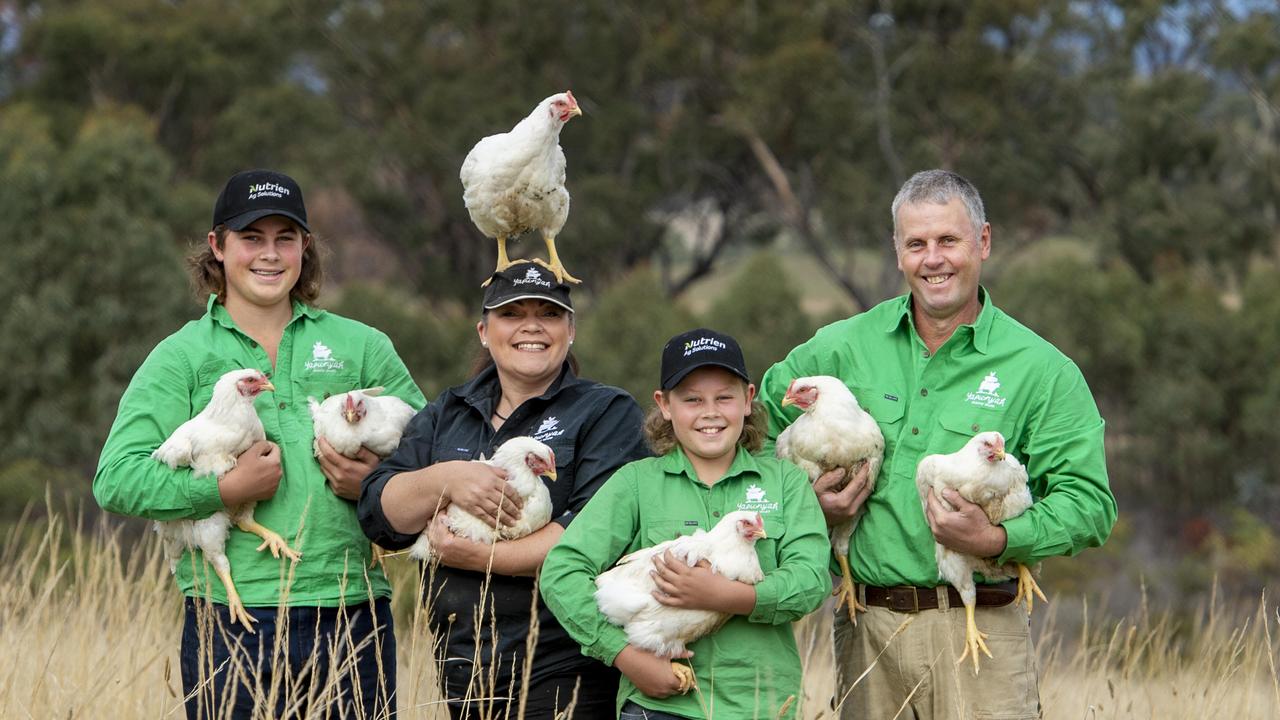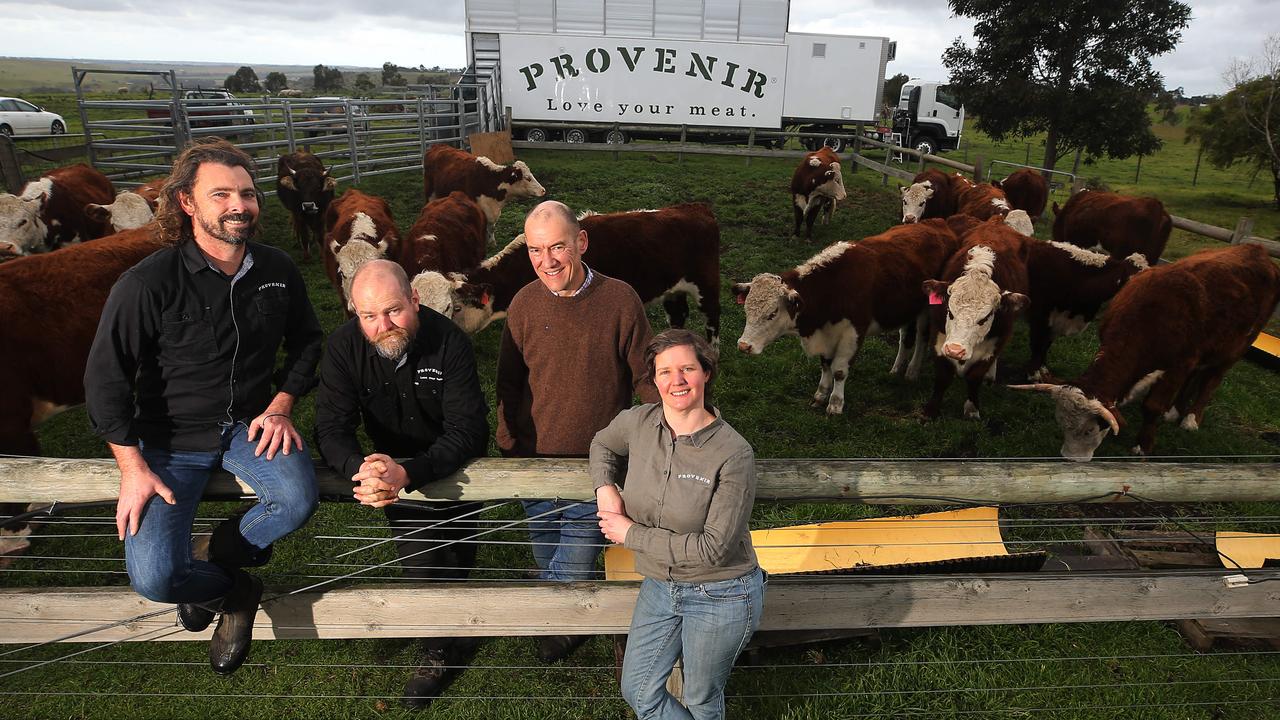Why organic industry growth is under threat
Growers and advocates explain why the integrity of the organics sector could be undermined on home soil, and reveal the true cost of becoming certified organic.

AUSTRALIA’S certified-organic sector is worth $2.6 billion to the economy.
A massive 35.6 million hectares of this continent is certified organic – almost half the globe’s 71.5 million organic hectares.
They are big figures, suggesting Australia’s organic industry is not small potatoes. Projected growth of 15 per cent has also caught the attention of policy makers, who want to build the sector.
Organic growers and peak body leaders reveal what developments they would like to see in organics, and build their case for domestic regulation of organic labelling.
CERTIFICATION THE COST OF MARKET ACCESS
ORGANIC berry grower Phil Rowe remembers when the organic sector was much smaller than it is today.

“It wasn’t really an industry at the time,” says the Gippsland horticulturist, who started his mixed berry enterprise in the Strzelecki Ranges more than 30 years ago, without chemical inputs.
Phil says organic certification in Australia was pioneered by producers who wanted to improve the health of their land, customers, workforce and environment. He believes people pushing for industry growth must keep those goals in the cross hairs.
“That whole system is the best aligned system for planetary health,” he says.
He wanted his processes certified by a third party to ensure long-term access to Melbourne markets. But it was early days, and no certification standard existed. So he worked with like-minded producers to create one. His Sunny Creek Organic Berry Farm achieved organic certification with The National Association for Sustainable Agriculture Australia in 1988.
“There are a lot of producers with an emotional view – that you shouldn’t have to pay to prove you don’t use chemicals,” he says. “Ultimately these days you have to pay to prove that you do what you say you do. Increasingly it is the cost of entry into a food production market. I support that model.”
Phil produces no chemical run-off, never exposes his family or customers to chemicals; and ensures his land is productive year after year. Those benchmarks are his measures of success. The trade-off is an occasional crop loss and necessity to diversify.
Following NASAA’s lead, Australia set a global example by agreeing a nationally recognised organic and biodynamic standard in 1992. Long-time organics advocate and Queensland beef producer Marg Will was involved in its development.

“It is believed to be the first government standard agreed anywhere in the world,” says Marg, who is chief executive of Organic Systems and Solutions consultancy. “The reason I have been involved in the industry over the past 20 years is it really is one opportunity for farmers to be price makers, not price takers.”
Since that early pioneering, however, a domestic regulatory framework to enforce organic labelling has never been put in place. Australian organic produce for export must be certified to be labelled as organic, but food and fibre produced and sold on our shores can be labelled organic without any proof of production methods. Marg says the situation is a real threat to exporters.
“I have been in high level meetings with various international governments to try to negotiate market access for Australian organic products, and this is the thing they keep bringing up,” she says. “If you don’t regulate in some shape or form domestically, how can you assure us the products you send us meet the universal standards we have agreed are organic?”
Marg’s second concern is consumer confidence. “From a policy perspective, all levels of government need to acknowledge that consumers actively seek out organic produce, and they have a right to get what is organic when they buy it,” she says.
IMPERATIVES FOR ORGANIC SECTOR FUTURE
FEDERAL Agriculture Minister David Littleproud formed a 16-member Organic Industry Advisory Group late last year to work through this, and other pressing issues. Marg is part of the group, as is beef producer and chair of peak body Organic Industries of Australia Dalene Wray.

“We hear from stakeholders in Australia that they are looking for market integrity,” Dalene says. “If you pay money to be certified organic, you don’t want people who are not to cheat the system.”
Dalene says the price paid for organics in export markets is inextricably linked to price premiums commanded on home soil.
“If we have a prosperous export market that will pull domestic prices up,” she says, citing truffles as an example. Australian truffles command impressive sums overseas, and that demand has triggered a budding industry here, with equally strong prices.
Australian Organic chief executive Niki Ford is also part of Littleproud’s advisory group. She says domestic regulatory reform is her peak body’s top priority.
“It is a federal requirement if a producer exports outside Australia to be certified organic,” she says. “What we want is for consumers in Australia to be treated like consumers overseas when they buy organic products.”

Many organic farmers say the real reasons they embrace certification are more complex than market access and price premiums.
Vegetable grower Tim Wyatt runs Angelica Organic Farm at Glenlyon in central Victoria with his wife, Deri-Anne. The farm has been certified organic for 14 years.
“We believe if we are certified, we are checked. We are doing everything we can to promote the industry and take it forward,” Tim says. His main motivators are to maximise soil health and do his part to stop climate change. Tim says the certification process, particularly with the Biodynamic Research Institute, also offers the benefit of shared knowledge from experienced growers.
Janie McClure of Rural Organics agrees.
She runs a grazing property at Wilcannia in NSW, and her business supplies organic beef and lamb from other growers to butchers and supermarkets across Australia.
Many of her suppliers are biodynamic certified. “The extra effort that these farmers have to put into their certification to be biodynamic, it shows when you eat their product,” she says.
For Janie’s onselling operation, the complexity of certification is more onerous.
“We’ve got to produce every single growers’ certification and every single butcher’s certificate. Every abattoir certificate. We have to make sure the trucks we use to transport the stock are familiar with the isolation of the product.
“It is a lot of work.”
In her view, the organic industry’s biggest challenge is teaching consumers what certification means.
“We have huge education to do,” she says.

Beef producer Alan Wood of Milawa Organic Beef says organic certification is a solid framework on which many other sustainable, environmentally responsible farming practices should be overlaid.
Biological farming and carbon sequestration are crucial tools he uses, in addition to organic management, to strike balance between livestock health, soil health and environmental health.
He says costs of all these practices, especially for a livestock producer, can escalate quickly when seasonal conditions are tough.
Organically grown feed and fodder, non-treated crop and pasture seeds and investment in innovative machinery, including a new Soilkee pasture renovator which he will soon start using on the farm, don’t come cheap.
He says the complexity of the farming system can sometimes be overwhelming.
“It takes a bit to navigate,” he says. “I might have done a bachelor of engineering, and my teacher training and taught maths and science for years, but this is another bloody story … you’ll never master it.”
His goal, he says, is to give it a red-hot go and “leave the place way better than it was when we started”.
HOW TO BECOME CERTIFIED
To become certified organic, farmers must lodge an application with one of the six certifying bodies in Australia. There is usually a first-time application fee of $150-$600, depending on the certifier and the scheme.
Then, producers must commit to an annual audit, which includes soil tests, to prove their produce is grown and processed without the use of synthetic chemicals, fertilisers or genetically modified organisms.
Organic certification standards also have requirements related to animal husbandry, welfare, transport and packaging.
Some of the six certifiers also charge annual levies, which go towards industry development, and range from $0 to $4400 a year, depending on a producer’s annual sales.
COST OF ORGANIC CERTIFICATION
Australian Certified Organic
Producers annual audit fee starts at $1095, plus soil tests.
Aus-Qual
Offers vast choice of certifications, not just organic. Fees available on request.
Bio-Dynamic Research Institute
Annual farmer certification fee starts at $1210.
NASAA Certified Organic
Annual certification fee for domestic producers starts at $820, and $1045 for export producers.
Organic Food Chain
Initial producer certification fee starts at $2145.
Southern Cross Certified Australia
Annual certification fee for domestic producer starts at $600. Export certification for producers starts at $1250.
MORE
AUSTRALIAN ORGANIC INDUSTRY PUSHES FOR MAJOR REFORM
ORGANIC LABELLING: NO ENFORCEABLE CERTIFICATION A BIG CONCERN


